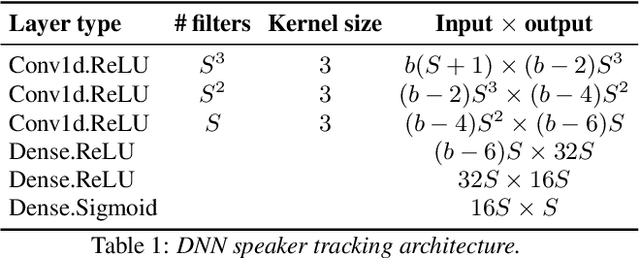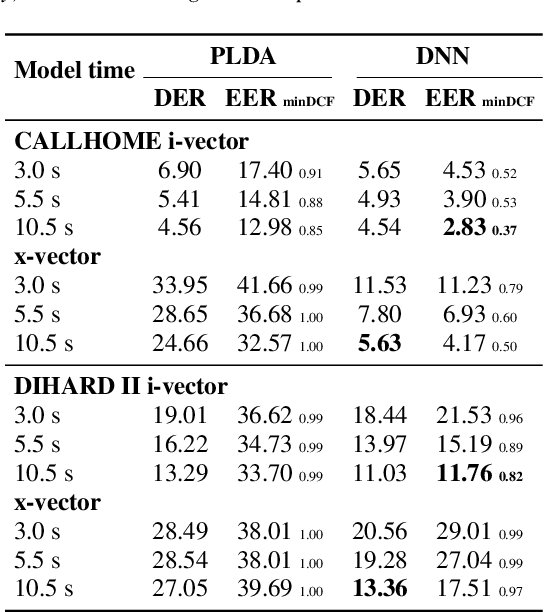DNN Speaker Tracking with Embeddings
Paper and Code
Jul 13, 2020



In multi-speaker applications is common to have pre-computed models from enrolled speakers. Using these models to identify the instances in which these speakers intervene in a recording is the task of speaker tracking. In this paper, we propose a novel embedding-based speaker tracking method. Specifically, our design is based on a convolutional neural network that mimics a typical speaker verification PLDA (probabilistic linear discriminant analysis) classifier and finds the regions uttered by the target speakers in an online fashion. The system was studied from two different perspectives: diarization and tracking; results on both show a significant improvement over the PLDA baseline under the same experimental conditions. Two standard public datasets, CALLHOME and DIHARD II single channel, were modified to create two-speaker subsets with overlapping and non-overlapping regions. We evaluate the robustness of our supervised approach with models generated from different segment lengths. A relative improvement of 17% in DER for DIHARD II single channel shows promising performance. Furthermore, to make the baseline system similar to speaker tracking, non-target speakers were added to the recordings. Even in these adverse conditions, our approach is robust enough to outperform the PLDA baseline.
 Add to Chrome
Add to Chrome Add to Firefox
Add to Firefox Add to Edge
Add to Edge